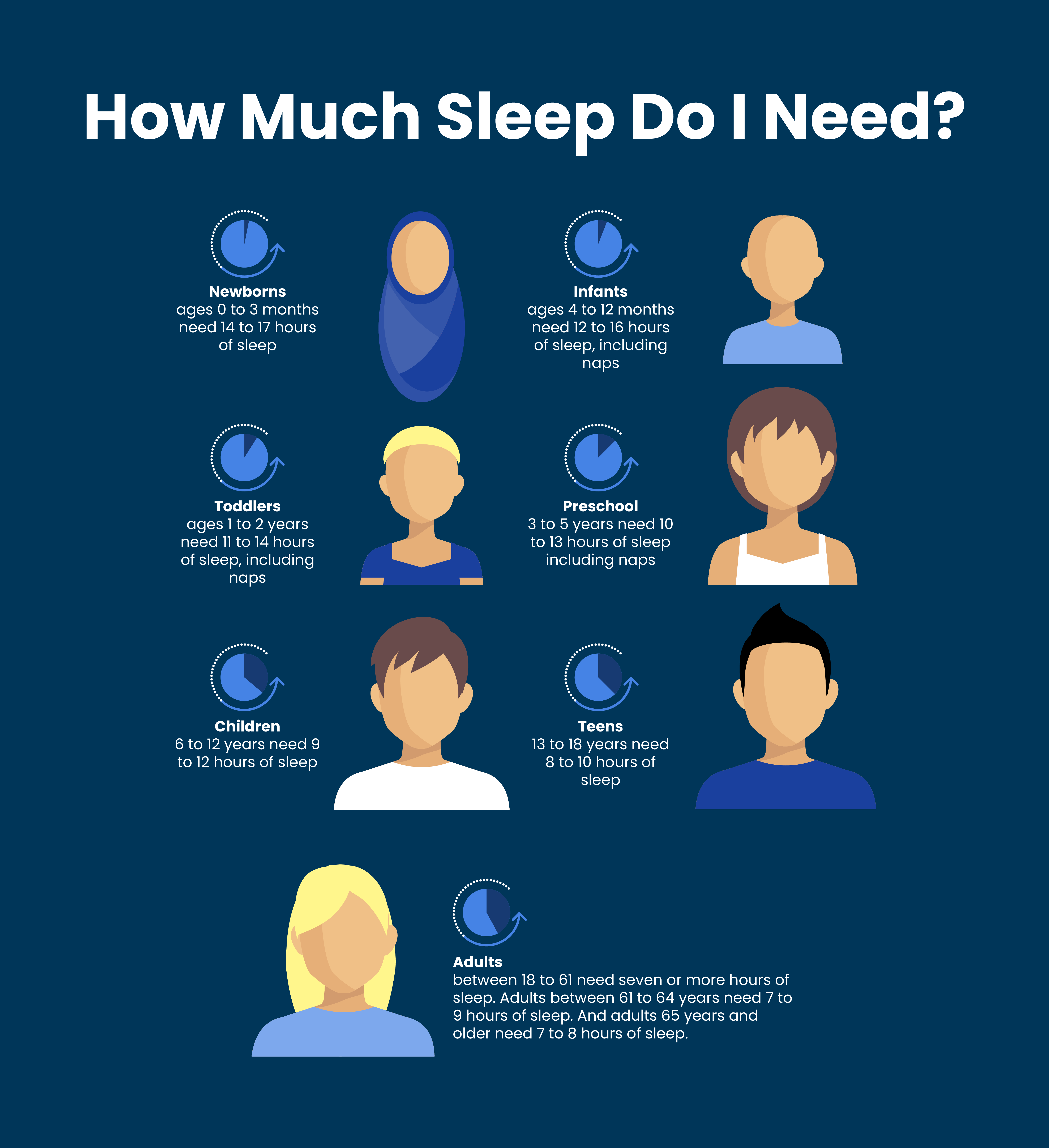The Truth About How Much Sleep You Really Need
Sleep is such an integral part of our daily lives, yet there is still so much mystery surrounding how much sleep is actually needed. Recommendations tend to cite 8 hours as an ideal goal, but research shows sleep needs vary widely from person to person. This massive 2500-word article aims to uncover the facts about individual sleep needs based on the latest scientific evidence.
Your Genetics Play a Role
Studies have found genetic factors influence an individual’s sleep needs. Some people have a mutation allowing them to function well on just 6 hours, while others require closer to 10 hours. Your DNA’s relationship to sleep duration is an area requiring further exploration, but it’s clear genes partly determine your optimal sleep amount.

Age Affects Sleep Needs
Children and teenagers need more sleep than adults as their bodies and brains develop rapidly. Newborns typically sleep up to 17 hours daily, while teen sleep requirements range from 8-10 hours. Sleep needs gradually decrease with age, with most seniors reporting adequate rest with 6-7 hours nightly. A person’s stage of life impacts their unique sleep requirements.
Quality Matters Too
Getting 8 hours isn’t guaranteed to prevent daytime fatigue if sleep quality is poor. Frequent disturbances from conditions like sleep apnea symptoms can negate the benefits of time spent asleep. Both quantity and quality must be prioritized, and underlying issues treated, to feel fully rested. Tracking factors affecting sleep depth provides insight toward personal sleep needs.
Lifestyle Influences Sleep
Exercise routines, work schedules, meals, and screen time all modify circadian cycles and sleep-wake patterns. Those with consistent daily routines requiring early rising tend to need less sleep. Whereas erratic sleep-wake habits from shift work or late evenings are linked to higher sleep needs. Accounting for lifestyle behaviors offers perspective on achieving optimal rest.
Medical Conditions Impact Sleep
Some medical conditions directly alter sleep needs. Depression, anxiety, fibromyalgia, and chronic pain disorders often coincide with significantly elevated sleep requirements. Conversely, certain medications like stimulants effects on sleep can reduce sleep needs. Consulting a physician helps determine if underlying health issues are influencing sleep and should be addressed.
Pay Attention to How You Feel
More than any guidelines or studies, paying attention to your own body provides the best clues about your sleep needs. Track mood, energy levels, and cognitive performance at different sleep durations to determine your personal baseline. Some thrive on less than 7 hours if alert, while others feel drained with under 8 hours. Finding the magic number for feeling refreshed and productive starts from within.
Naps Can Benefit Sleep Needs
For those who sleep less at night but feel fatigued, a short afternoon nap may fulfill additional sleep requirements while boosting productivity and mood. One study found just a 20-minute siesta improved daytime alertness equivalent to an extra hour of nightly sleep. Trialling naps can reveal if they effectively decrease personal sleep requirements.
Customize Your Sleep Schedule
Rather than fixating on a one-size-fits-all 8 hour rule, focus on listening to your body, adjusting duration flexibly as needed, and prioritizing quality rest. With self-experimentation, a schedule supporting both obligations and optimal health gradually emerges. Sleep is highly individualized – find what truly nourishes you through patience and awareness of how much shut-eye you really require each night.
I hope this comprehensive exploration of the factors impacting personal sleep needs has shed new light. While guidelines offer a starting point, tuning into your own experience ultimately dictates how much sleep you require. Regular self-assessment helps customize rest for enhanced daytime function, well-being and productivity. Let me know if you have any other questions!
